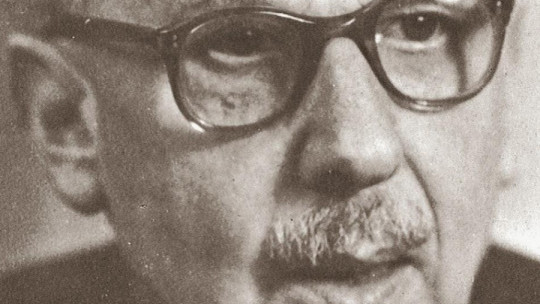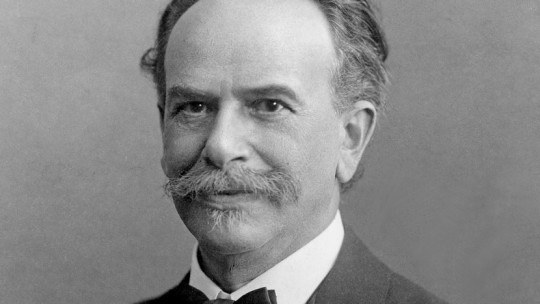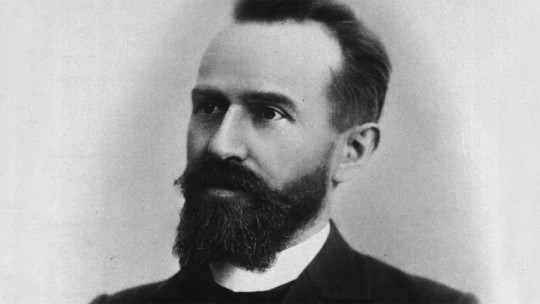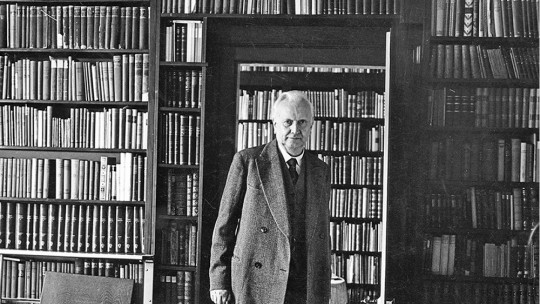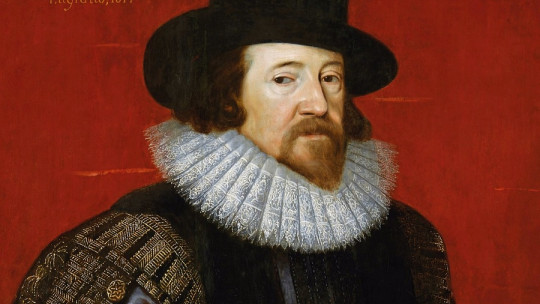Franz Brentano is considered one of the key figures in the beginnings of tla psychology and how we understand it today. Although we do not owe everything that is current behavioral science to him, it is true that he is one of the first to approach it from an empirical point of view.
Born in an extremely cultured and intellectually active environment, it was a matter of time before Brentano felt interest and devotion to philosophy, psychology and theology, becoming qualified as a priest.
Today we are going to discover what happened to the life of this author and researcher through a biography of Franz Brentano and we will talk about his philosophy and his most notable works.
Brief biography of Franz Brentano
Franz Brentano was a German philosopher, psychologist and priest. He was a disciple of Bernard Bolzano, he defended the thesis of intentionality as a characteristic feature of psychological phenomena, giving rise to what would later be known as the Austrian school of act psychology
This German philosopher set a trend in his time and in his disciples, who have come to be called “the Brentano school”, among them Edmund Husserl and Sigmund Freud.
Early years and training
Full name Franz Clemens Honoratus Hermann Brentano, was born in Marienberg, currently Germany, on January 16, 1838 Raised in a literary environment, Franz Brentano already showed intellectual interest, heading down the path of studies very soon and feeling a special predilection for philosophy.
His family was full of intellectuals: he was the son of Christian Brentano (writer), the brother of Lujo Brentano (economist and social reformer), and the nephew of Clemens Brentano (poet and novelist) and Bettina von Armin (writer and novelist), and by Gunda and Friedrich von Savigny (jurist and historian).
The young Franz studied philosophy at the universities of Munich, Würzburg, Berlin (together with Adolf Trendelenburg) and Münster. Brentano showed interest in Aristotle and scholastic philosophy, with Greek being the subject of his doctoral thesis in 1862 under the title Von der mannigfachen Bedeutung des Seienden nach Aristoteles (“Of the multiple signification of being according to Aristotle”). The reviewer of his thesis was Franz Jakob Clemens.
Priestly crisis
Being sincerely and intensely Catholic, he began to study theology, entering the seminary of Munich and, later, that of Würzburg He would be ordained a Catholic priest on August 6, 1864, his ethical-religious ideal being that of a liberal Catholicism. Furthermore, he would combine this with university teaching, defending his thesis in 1966. Die Psychologie des Aristoteles, insbesondere seine Lehre vom Nous Poietikos (“The Psychology of Aristotle, in Particular his Doctrine of the Active Intellect”).
Between the years 1870 and 1873, Franz Brentano He was involved in the debate over papal infallibility , which considers what the Pope says as a truth of faith and must be obeyed unconditionally. Brentano expressed his most emphatic opposition to such dogma and, because of the rigid position adopted by the Church in 1870 (Vatican Council I), he would experience a deep and bitter crisis of conscience that would culminate three years later with the definitive abandonment of the habit.
However, his abandonment of this profession did not mean leaving behind his deepest religious convictions. Proof of this is the fact that he spoke about the existence of God as a recurring theme in his lectures at the universities of Würzburg and Vienna, and He always expressed his sincere faith and interest in the Church, although he disagreed regarding papal dogma
Psychology from the empirical point of view
The year 1874 arrived and the edition of his masterpiece was published: “Psychology from the Empirical Point of View.” It is a work whose theoretical core Brentano would expose years later in his work “Classification of psychic phenomena” (1911). In-depth knowledge of the Aristotelian point of view, In the work he classifies psychic phenomena according to the different way they refer to the object
In his philosophical and psychological point of view, Brentano accepts the division into three classes: representations, judgments and emotional relationships. He took care to defend this distinction particularly against all thinkers who did not want to see any real difference between the concepts of “representation” and “judgment.” By “representation,” Brentano means being present in consciousness; while “judgment” would be whether the object of the representation is true or false.
At that time, the opinion was widespread that judgment consists of bringing together or separating in the field of representations, that is, that judgment is the action of relating two objects. This idea is criticized by Brentano, believing that the meeting of the subject and the predicate is not a necessary requirement to exercise a judgment In order to prove this, he reduces categorical statements to existential propositions.
For him, the categorical proposition “all men are mortal” had the same logic as the existential proposition “there is no immortal man.” Although he insisted on the necessary unity of all psychic phenomena of the human mind, Brentano assigned first place to representations, second to judgments, and third to feeling-will. proving contrary to the voluntarist tendency of the psychology of his time
Bittersweet years
From 1874 to 1895 he taught at the University of Vienna, at that time an eminent educational center in the former Austro-Hungarian Empire.
It was the happiest and most fruitful period of his teaching, having among his students figures as relevant to the history of psychology and philosophy as Edmund Husserl, Sigmund Freud, Carl Stumpf, Anton Marty, Kazimierz Twardowski, Rudolf Steiner, Alexius Meinong, Tomáš Masaryk and Christian von Ehrenfels.
Despite having started his career as a normal, regular teacher, He was forced to leave teaching and also renounce his Austrian citizenship in 1880 so he could marry Ida Lieben
The reason for this was that Austria-Hungary law at the time denied marriage to those who had worked as priests, even if they had renounced the priesthood. However, he was allowed to remain at the university, but he could only work as a “Privatdozent”, that is, a private tutor.
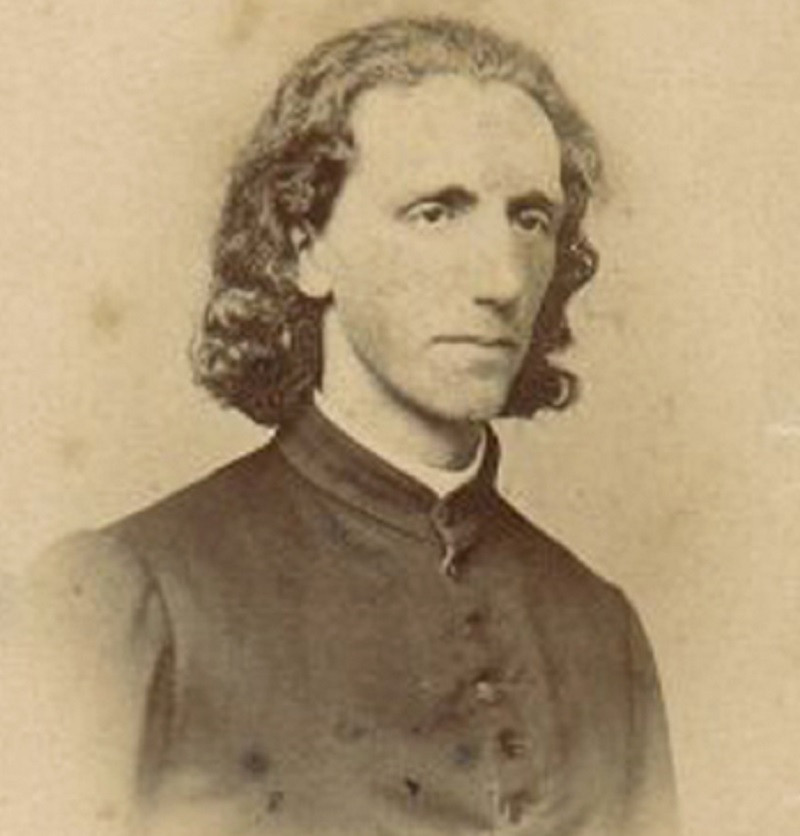
Last years and death
After his wife Ida died in 1894, Franz Brentano retired the following year and he would decide to leave Austria forever, but not without saying a bittersweet goodbye in his work “My Last Wishes for Austria” (1895).
In 1896 he moved to Florence, where he married his second wife, Emilie Ruprecht in 1897. In Italy he joined the group of Giovanni Papini, Giovanni Vailati and Mario Calderoni in the magazine “Leonardo”.
His last years were spent in Zurich , a city to which he moved with the outbreak of the First World War. He would die in the Swiss city on March 17, 1917 at the age of 79.
Philosophy of Franz Brentano
The publication of “Psychology from an Empirical Point of View” coincided with the publication of Wilhelm Wundt’s “Foundations of Physiological Psychology,” influenced by Emmanuel Kant. The works of Brentano and those of Wundt are considered the birth of the “Psychology of consciousness” through observation of experience. Despite the underlying Kantian influences, Brentano investigated metaphysical questions through a logical-linguistic analysis, which distinguished himself from both the English empiricists and academic Kantianism.
Brentano’s studies in the field of psychology introduced the concept of “intentionality”, an idea that would have a direct influence on his pupil Husserl.
This term refers to The phenomena of consciousness are distinguished by having a content , that is, refer to some object. He also defined “intentional existence,” using, for example, colors and sounds that, although they would not have a palpable “object,” were stimuli that existed.
Brentano considered that the mind is composed of mental acts, which are directed to objects with some meaning external to the mind. For him, The mind did not constitute a psychological world connected by mere chance to reality, but rather the medium through which our organism can actively capture the reality that surrounds us His “Psychology of the act”, converted into phenomenology, was a great boost to Cognitive Psychology by describing consciousness instead of analyzing it and dividing it into parts.
Transcendental phenomenology would end up taking shape with Husserl, creator of the phenomenological method, in addition to Max Scheler who would expand this current to the field of ethics and values as its intentional objects. Martin Heidegger and Maurice Merleau-Ponty would also receive influences from Brentano’s philosophy, and even Jean-Paul Sartre’s existentialism would borrow some ideas from the German thinker.



